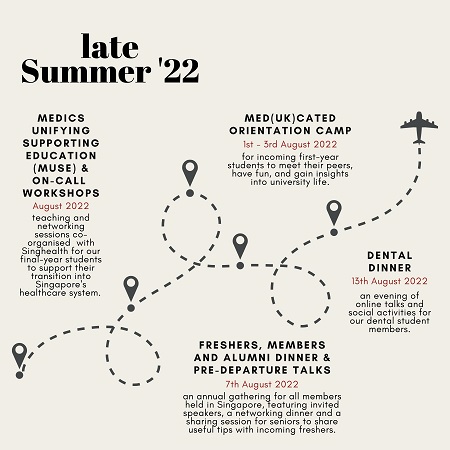Gabriel Kwok
In early childhood, the emergence of object permanence marks an important milestone in brain development. If you showed an infant a ball before hiding it, the child would think it had simply ceased to exist. Eventually though, with time and progressive learning, the child reaches a profound epiphany: that sensory perception is not necessarily being, that an external reality functions independently of what the eyes see. The ball still has its own existence; it is merely somewhere else. With this development comes the beginnings of a working memory, enabling us to shape our own life stories.
I have often wondered if the same could be said of adult journeymen thrust into new surroundings. As a neophyte stumbling into a foreign city, a fresher's first trip abroad can be a discombobulating experience indeed. Without the quotidian yet intimate rhythms of home, it is surprisingly easy to forget that these remain available to us, despite the temporary distance. Gradually, though, we emerge from this sense of unmooring into an exciting new chapter of life. Singapore Changi Airport and London Heathrow Airport (or Hamad International Airport for some) become contiguous spaces, as home starts to feel a little more real even when we cannot see it.
At this point, one might raise a doubt: how truly permanent is this idea of home when nothing really stands still in Singapore, and when we too have changed? This is an important point, no doubt, and there are certainly pitfalls we should heed, but I beg to differ because object permanence really depends on memory rather than some fallacious notion of a thing's constancy. That is, we can remember home for what it truly was without losing sight of what no longer is; in fact, we would not be capable of the latter without those memories in the first place. Memory gives us both an identity to work from and the capacity to learn and, thus, grow. Having learnt about being, there is now the possibility of becoming something else. Our memories have much to teach us, should we choose to reflect upon them.
Now surrounded by familiar sights and sounds, like leitmotifs from a favourite childhood melody, there is no better time to ponder these things. More importantly, perhaps, this is the time we run numerous fresher-oriented programmes to support and ease the difficult transitions that many are doubtless facing. After all, there are few better proxies for our younger selves, and no better use for knowledge than the betterment of others.

SMSUK events overview
Sammi Lim
The past two years have taught me many important lessons that I will remember for life. This is a letter to my younger self, who was feeling anxious studying abroad for her very first time.
Dear Sammi,
This is Sammi from the future. You must be feeling quite nervous about starting university in a foreign country, without the security of having your family and friends physically close to you. This is some advice to help you navigate some of the speed bumps you will face as you embark on this new journey. The next few years will push you to your limits, but you will discover strengths and courage within yourself that you did not think possible.
Be confident and resilient. There inevitably comes a point in medical school when you feel like you do not know what you are doing, and that you do not deserve to become a doctor. Maybe even after countless hours of studying, you may not perform as well as you had hoped. Imposter syndrome slowly creeps in, and you begin doubting your abilities. It is entirely normal to feel this way, but persevere and never stop setting goals for yourself. You will slowly but surely rise above these self-doubts, and learn to trust yourself and your instincts. One day, with hard work and a little faith, you will go further than you have ever imagined.
No matter how lonely you feel in the UK, know that you are never truly alone. You will go through some of the most difficult days and restless nights of your life, but your family and true friends will always be there for you. Be they miles away or right here in Manchester, they are only a FaceTime call away. Trust that better times lie ahead – days filled with so much happiness and peace.
While the journey may not be easy, stop once in a while to appreciate all the little things. Studying overseas is an immense privilege that not everyone can afford. Our experiences are so unique, so never take anything for granted and cherish your time there.
We only live once, so make the best out of it. You also have a life outside of medical school. Endless opportunities await you, so do not be afraid to try something new. Step out of your comfort zone and meet new people; maybe even pick up new hobbies like baking and film photography! Take advantage of how well connected the UK is and travel more, exploring different cultures and cuisines. Your university experience is only as good as you make it.
It may seem difficult to believe, but years from now, you will look back on this incredible journey and be just so grateful for everything that has happened, and for the people who have supported you. And I would not want to change a single thing, because all these experiences, both good and bad, have shaped us into who we are today.
Yours truly,
Your Future Self